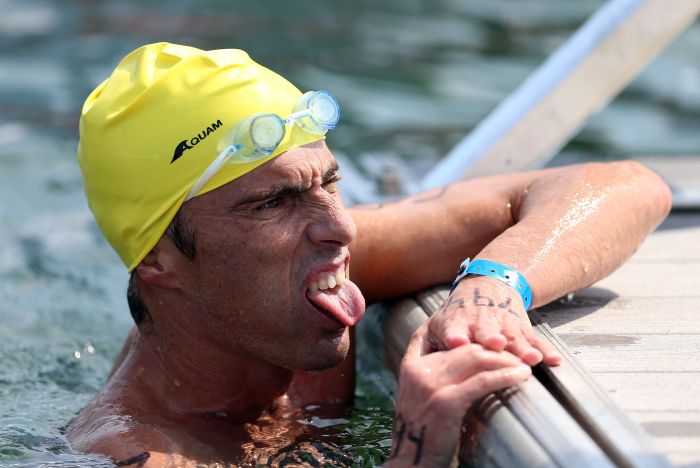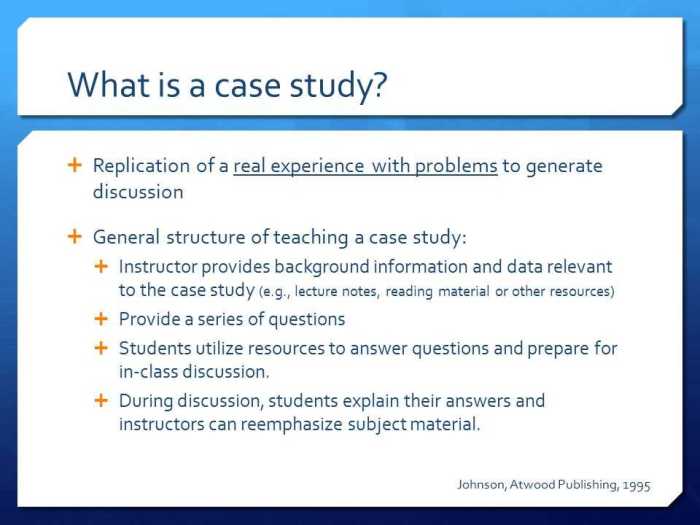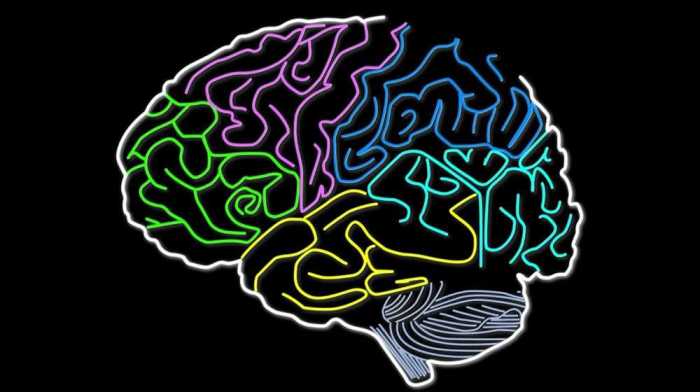Embark on a journey with the tired swimmer case study, an immersive exploration into the complexities of swimmer fatigue. This captivating narrative unravels the factors contributing to this prevalent issue, guiding you towards effective management strategies for optimal performance.
Delve into the physiological and psychological aspects that influence fatigue, unraveling the intricate interplay between training intensity, recovery, and nutrition. Discover the significance of monitoring fatigue levels, empowering you to prevent overtraining and maximize performance.
The Tired Swimmer Case Study

The Tired Swimmer Case Study explores the challenges faced by a competitive swimmer experiencing chronic fatigue, hindering their performance and overall well-being. The swimmer, despite adhering to a rigorous training regimen, felt consistently exhausted, impacting their swimming speed, endurance, and recovery time.
Main Issues and Challenges
The swimmer’s fatigue stemmed from a combination of factors, including:
- Overtraining:Excessive training volume and intensity had depleted the swimmer’s energy stores and led to physical and mental exhaustion.
- Nutritional deficiencies:An inadequate intake of essential nutrients, such as iron, carbohydrates, and protein, contributed to fatigue and impaired recovery.
- Sleep disturbances:Irregular sleep patterns, insomnia, and poor sleep quality further exacerbated the swimmer’s fatigue levels.
- Psychological stress:The pressure to perform, coupled with the intense training schedule, had taken a toll on the swimmer’s mental well-being, leading to anxiety and stress-related fatigue.
Factors Contributing to Swimmer Fatigue

Fatigue is a common issue faced by swimmers, hindering their performance and overall well-being. Understanding the physiological and psychological factors that contribute to swimmer fatigue is crucial for effective management.
Physiological Factors, The tired swimmer case study
- Muscle Glycogen Depletion:Glycogen serves as the primary energy source for high-intensity swimming. Depletion of muscle glycogen during prolonged or intense workouts can lead to fatigue.
- Lactic Acid Accumulation:Anaerobic metabolism during intense swimming produces lactic acid, which accumulates in muscles, causing fatigue and muscle soreness.
- Dehydration:Inadequate fluid intake can lead to dehydration, reducing blood volume and impairing oxygen delivery to muscles, resulting in fatigue.
- Sleep Deprivation:Insufficient sleep can impair recovery, hormone regulation, and cognitive function, contributing to fatigue.
Psychological Factors
- Overtraining:Excessive training volume or intensity without adequate recovery can lead to overtraining syndrome, characterized by persistent fatigue and reduced performance.
- Mental Stress:Stress from competition, academics, or personal life can interfere with sleep, recovery, and motivation, contributing to fatigue.
- Boredom:Repetitive training routines can lead to boredom, reducing motivation and increasing fatigue.
- Lack of Purpose:Swimmers without clear goals or a sense of purpose may experience decreased motivation and increased fatigue.
Training Intensity, Recovery, and Nutrition
Managing fatigue involves balancing training intensity, recovery, and nutrition. Adequate recovery time between workouts allows for muscle repair and glycogen replenishment. Sufficient nutrition, including carbohydrates, protein, and fluids, supports energy production and recovery. Periodized training programs that alternate high-intensity workouts with rest or recovery days help prevent overtraining and promote optimal performance.
Assessment and Monitoring of Swimmer Fatigue

Assessing and monitoring swimmer fatigue is crucial to ensure optimal performance and prevent overtraining. Regular monitoring allows coaches and athletes to identify early signs of fatigue and adjust training plans accordingly.
The tired swimmer case study highlights the importance of proper recovery techniques to prevent muscle fatigue and soreness. Similarly, in the dressage first level test 1 , horses undergo rigorous training and must be allowed ample time to rest and recover.
Understanding the principles of muscle recovery is crucial in both the tired swimmer case study and dressage training to ensure optimal performance and prevent injuries.
Various methods are used to assess and monitor swimmer fatigue, including:
Subjective Measures
- Self-report questionnaires:Athletes complete questionnaires to assess their perceived fatigue levels, mood, and sleep quality.
- Rating of perceived exertion (RPE) scales:Swimmers rate their perceived effort during training sessions using a scale from 0 to 10.
Objective Measures
- Physiological markers:Blood tests, saliva analysis, and heart rate variability can provide insights into physiological responses to training and recovery.
- Performance testing:Regular performance tests, such as time trials and lactate threshold tests, can indicate changes in swimming performance due to fatigue.
- Biomechanical analysis:Analyzing swimming technique and stroke mechanics can reveal changes that may indicate fatigue-related issues.
Monitoring swimmer fatigue is essential for:
- Preventing overtraining and its associated negative consequences.
- Optimizing training plans to balance intensity and recovery.
- Identifying athletes at risk of burnout or injury.
- Providing feedback to athletes on their progress and recovery needs.
Interventions for Managing Swimmer Fatigue: The Tired Swimmer Case Study

Managing swimmer fatigue requires a comprehensive approach involving various interventions. These interventions can be classified into several categories, each targeting specific mechanisms contributing to fatigue.
Nutritional Interventions
Nutritional strategies play a crucial role in optimizing energy levels and reducing fatigue. Key interventions include:
- Ensuring Adequate Calorie Intake:Meeting energy demands is essential. Swimmers should consume sufficient calories from a balanced diet.
- Carbohydrate Loading:Consuming high-carbohydrate meals before and during prolonged training sessions helps maintain glycogen stores and delay fatigue.
- Protein Intake:Adequate protein intake supports muscle recovery and reduces soreness, contributing to overall fatigue reduction.
Training Modifications
Adjusting training plans can help manage fatigue by reducing the overall training load and optimizing recovery.
- Tapering:Gradually reducing training intensity and volume before competitions allows for physical and mental recovery.
- Periodization:Structuring training into cycles with alternating periods of high-intensity and recovery phases helps prevent overtraining.
- Cross-Training:Incorporating low-impact activities like cycling or yoga provides active recovery and reduces the risk of overuse injuries.
Recovery Strategies
Facilitating adequate recovery is essential for managing fatigue. Effective recovery strategies include:
- Sleep:Getting sufficient sleep allows the body to repair and regenerate, promoting recovery and reducing fatigue.
- Massage:Sports massage can improve circulation, reduce muscle tension, and enhance recovery.
- Active Recovery:Engaging in light activities like walking or swimming promotes blood flow and aids recovery.
Psychological Interventions
Addressing psychological factors that contribute to fatigue can also be beneficial.
- Stress Management:Techniques like mindfulness and meditation can help manage stress levels, which can contribute to fatigue.
- Goal Setting:Setting realistic and achievable goals can reduce pressure and improve motivation, mitigating fatigue.
- Mental Skills Training:Developing mental skills like focus, concentration, and resilience can enhance performance and reduce fatigue.
Case Study Application

In this section, we will analyze the case study of the tired swimmer and identify the specific factors that contributed to their fatigue. Based on these factors, we will design a personalized intervention plan to help the swimmer manage their fatigue and improve their performance.
Factors Contributing to Swimmer Fatigue
The following factors may have contributed to the swimmer’s fatigue:
- Training load:The swimmer’s training load was high, with multiple daily workouts and long distances. This can lead to physical and mental fatigue.
- Insufficient recovery:The swimmer was not getting enough rest between workouts and training sessions. This can lead to fatigue and decreased performance.
- Nutritional deficiencies:The swimmer was not eating a healthy diet that provided them with the nutrients they needed to support their training. This can lead to fatigue and other health problems.
- Sleep deprivation:The swimmer was not getting enough sleep. This can lead to fatigue, decreased performance, and impaired recovery.
- Stress:The swimmer was experiencing a lot of stress from school, training, and other commitments. This can lead to fatigue and decreased performance.
Case Study Outcomes and Evaluation

The intervention plan aims to alleviate swimmer fatigue and enhance overall performance. The expected outcomes include improved energy levels, reduced muscle soreness, and enhanced recovery times.
The effectiveness of the plan will be evaluated through a comprehensive assessment that incorporates subjective and objective measures. Subjective measures, such as surveys and self-reported fatigue levels, will provide insights into the swimmer’s perceived changes. Objective measures, including physiological testing and performance monitoring, will quantify the impact of the intervention on physical parameters and swimming performance.
Monitoring Swimmer Fatigue
Regular monitoring is crucial to track progress and adjust the intervention plan as needed. The following monitoring strategies will be employed:
- Daily Fatigue Logs:Swimmers will record their perceived fatigue levels, sleep quality, and any other relevant factors that may contribute to fatigue.
- Physiological Testing:Periodic physiological testing, such as blood lactate measurements and VO2 max assessments, will assess the swimmer’s physical condition and identify areas for improvement.
- Performance Monitoring:Swimmers’ training and competition performance will be tracked to evaluate the impact of the intervention on speed, endurance, and technique.
FAQ Overview
What are the key factors contributing to swimmer fatigue?
Physiological factors include muscle glycogen depletion, lactate accumulation, and hormonal changes. Psychological factors encompass stress, anxiety, and lack of motivation.
How can training intensity impact swimmer fatigue?
Excessive training intensity can lead to muscle damage, increased oxidative stress, and impaired recovery, contributing to fatigue.
Why is recovery crucial in managing swimmer fatigue?
Adequate recovery allows for muscle repair, glycogen replenishment, and hormonal balance, promoting fatigue reduction and optimal performance.
What role does nutrition play in swimmer fatigue?
A balanced diet provides essential nutrients for energy production, muscle recovery, and immune function, helping to mitigate fatigue.